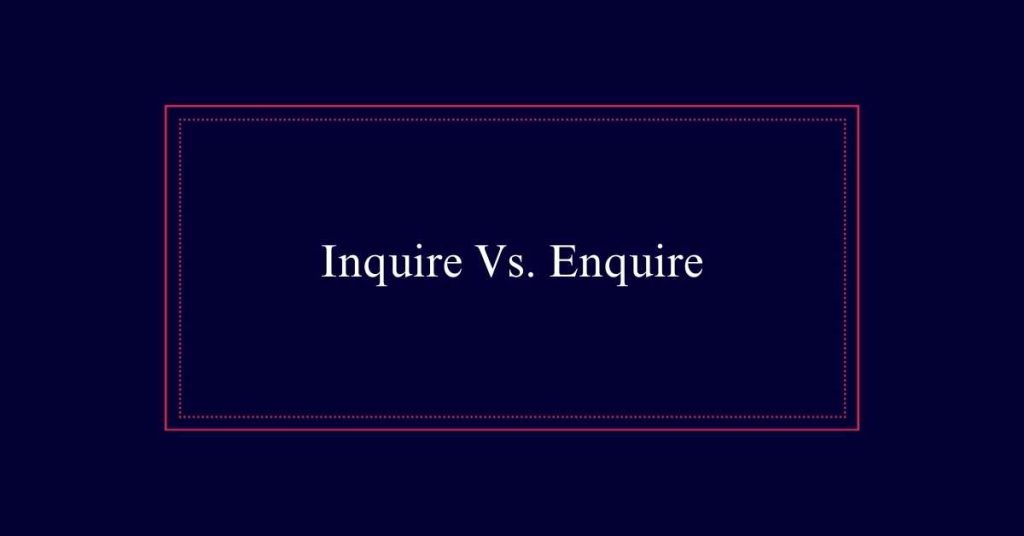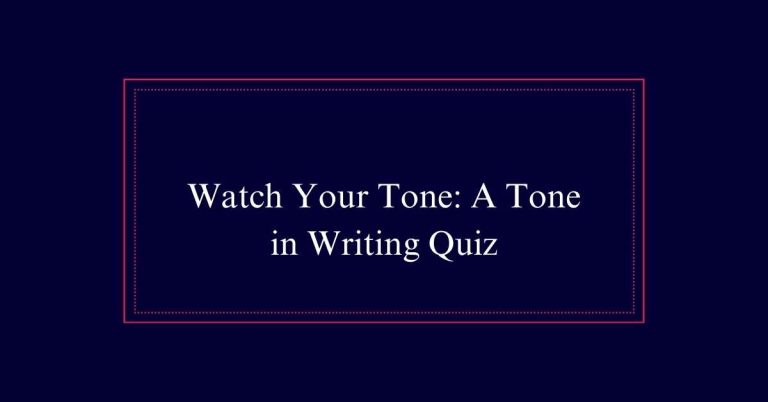Inquire Vs. Enquire
Use ‘inquire’ for all questions and formal requests in American English. In British English, ‘inquire’ is for formal or official investigations, while ‘enquire’ is typically for general questions. Despite the intended distinction in the UK, many people use the terms interchangeably.
For official or serious matters, ‘inquire’ is the preferred choice in both regions. For informal or everyday questions in the UK, ‘enquire’ is commonly used.
Meanings
The words ‘inquire’ and ‘enquire’ both mean to ask for information, but their usage varies based on formality and regional preferences.
In the United States, ‘inquire’ is the preferred spelling for all types of questions or investigations.
In British English, however, the distinction is more nuanced. ‘Inquire’ is often used for formal or official inquiries, while ‘enquire’ is used for general or informal questions. Despite these tendencies, British English speakers frequently use the two terms interchangeably.
This subtle difference can be important for writers and professionals who aim to align their language to the expected norms and contexts of their audience.
Formal Requests
In formal requests, ‘inquire’ is the appropriate term to use. This is especially true in American English, where ‘inquire’ is the preferred choice for all types of queries. When drafting formal letters, emails, or documents, using ‘inquire’ conveys a sense of professionalism and seriousness.
For example, if you need to ask for information from a business partner or a government agency, you would write, ‘I am writing to inquire about the status of our application.’ This usage guarantees clarity and aligns with standard practices.
Even in British English, where ‘enquire’ might be used in casual contexts, ‘inquire’ is often chosen for formal or official requests.

Official Investigations
Official investigations typically employ the term ‘inquire’ to denote the seriousness and formality of the process. This usage underscores the gravity of such probes and aligns with the precise and structured nature required for official matters.
In the context of legal inquiries, government probes, or corporate audits, ‘inquire’ is the preferred term. This distinction helps maintain a clear boundary between formal investigations and general queries.
In the United States, ‘inquire’ is universally favored in all contexts, emphasizing its importance in official settings.
In British English, while ‘inquire’ and ‘enquire’ can be used interchangeably, ‘inquire’ still holds prominence in formal investigations, ensuring clarity and appropriate tone in professional communications.
General Requests
Shifting from official investigations, general requests often use ‘enquire’ in British English. This usage is more informal and applies to everyday questions. For example, a traveler might enquire about train times or a student could enquire about course details. While ‘inquire’ can also be used, ‘enquire’ is more common for these types of queries.
Here is a comparison of usage:
| Context | British English | American English |
|---|---|---|
| General Question | Enquire | Inquire |
| Formal Request | Inquire | Inquire |
| Everyday Usage | Enquire | Inquire |
| Official Inquiry | Inquire | Inquire |
UK Usage
The distinction between ‘inquire’ and ‘enquire’ in the UK often hinges on the formality and context of the request. Traditionally, ‘inquire’ is reserved for formal or official investigations. For example, a government agency might ‘inquire’ into regulatory compliance.
Conversely, ‘enquire’ is used for general queries, whether formal or informal. For instance, one might ‘enquire’ about the availability of a product at a store.
Despite these subtle differences, the two terms are frequently used interchangeably in modern British English. It is not uncommon to see both words in similar contexts, reflecting a convergence in usage.
US Usage
In the United States, ‘inquire’ is the overwhelmingly preferred spelling for all contexts. This choice simplifies American English, avoiding the interchangeability seen in British English.
Americans use ‘inquire’ for both formal and informal requests. Whether asking a simple question or conducting a detailed investigation, ‘inquire’ is the standard. Usage examples include ‘inquire about job opportunities’ or ‘inquire into the incident.’ This consistency helps maintain clarity in written and spoken communication.
Unlike British English, where ‘enquire’ might still appear, American English has largely phased it out. When writing or speaking in the U.S., using ‘inquire’ helps maintain proper adherence to regional language norms and avoids confusion.
American English Preference
American English favors the use of ‘inquire’ over ‘enquire’ in all contexts. This preference is consistent across both formal and informal situations.
In American usage, ‘inquire’ is the standard term whether one is asking a simple question or conducting an official investigation. The use of ‘enquire’ is rare and often seen as a British variant. This clear preference helps to avoid confusion and maintain uniformity in written and spoken communication.
For example, Americans would say, ‘I will inquire about the meeting schedule,’ rather than using ‘enquire’. When writing or speaking in American English, it is advisable to use ‘inquire’ to ensure clarity and adherence to regional norms.
British English Practices
British English shows more flexibility in using ‘inquire’ and ‘enquire’ interchangeably. Both words are often seen as synonymous and can be used in similar contexts. Traditionally, ‘inquire’ was reserved for formal or official investigations, while ‘enquire’ was used for general questions. However, this distinction has blurred over time.
Today, both terms are commonly accepted for general queries and formal investigations alike. The choice between ‘inquire’ and ‘enquire’ often comes down to personal or regional preference. Despite this flexibility, some still prefer ‘inquire’ for more formal contexts and ‘enquire’ for informal ones.
Common Examples
To summarize the usage of ‘inquire’ and ‘enquire,’ let’s consider some common examples. In American English, ‘inquire’ is mainly used. For instance, ‘The manager inquired about the team’s progress.’ This denotes a formal asking.
In British English, ‘enquire’ is often used for general questions, such as, ‘She enquired about the opening hours.’ However, for formal investigations in British English, ‘inquire’ is preferred, as in, ‘The committee will inquire into the matter.’
Both words can sometimes be interchangeable in British contexts, like, ‘Please enquire/inquire at the information desk.’ To understand the context and regional preferences can guide the correct usage of these terms.
Regional Preferences
Regional preferences play a significant role in determining whether ‘inquire’ or ‘enquire’ is used. In the United States, ‘inquire’ is the favored spelling for all contexts.
In British English, both terms are accepted, but distinctions exist. ‘Inquire’ is preferred for formal or official investigations, while ‘enquire’ is typically used for general questions. Understanding these subtleties can evoke:
- Confidence in adhering to proper usage.
- Clarity in both written and spoken communication.
- Respect for regional linguistic norms.
- Precision in formal documentation.
- Ease in international correspondence.







